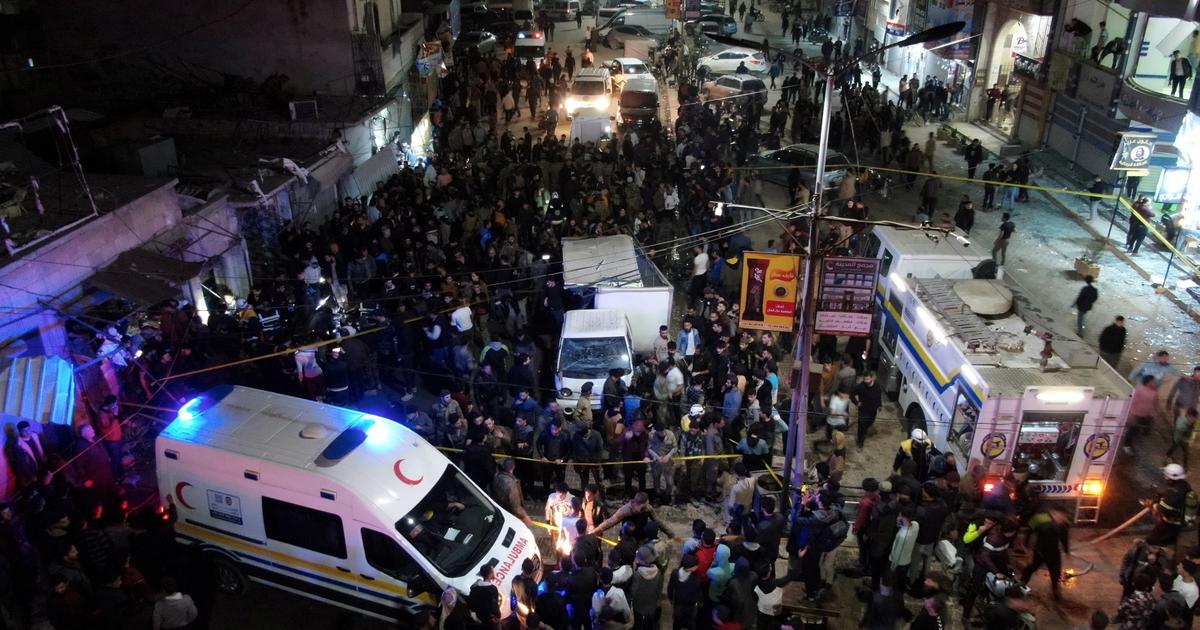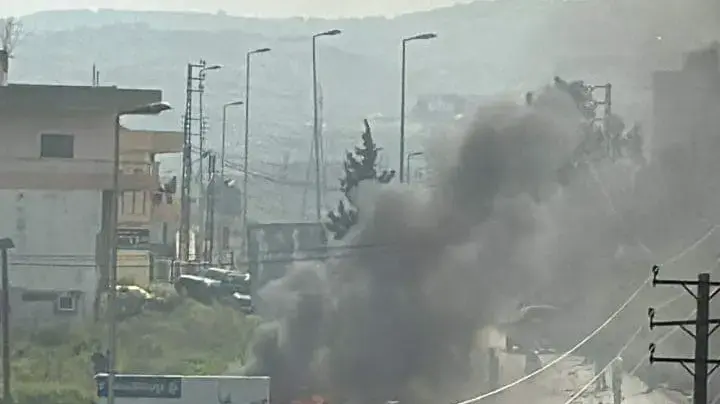Jean Asselborn is unique among European foreign ministers. While other counterparts in the EU often lose themselves in diplomatic phrases, the Luxembourger likes to keep his word open. On Monday, before the meeting of EU foreign ministers in Brussels, the Social Democrat says: "As Europeans we are not in a position to stop this, you have to tell people honestly."
With this analysis, Asselborn has accurately described the EU's position on the Turkish military offensive in northern Syria.
Last week, Turkish President Recep Tayyip Erdogan decided to intervene in northern Syria to dislodge the Kurdish People 's Defense Units (YPG) there to create a "security zone" along the Turkish border with her Germany - once more in the role of the observer.
Erdogan has undoubtedly threatened to drag the EU-Turkey agreement on refugee return into conflict. Speaking to supporters of his AKP, he recently said, "If you're trying to call our current operation a crew, then we'll have a rough match, then we'll open the doors and send you 3.6 million refugees."
Chancellor Angela Merkel (CDU) had talked on Sunday with the Turkish president - according to Berlin representation at his request - for about an hour long. Government spokesman Steffen Seibert announced on Monday the content of the conversation:
One sees the "legitimate security interests" of Turkey, these are however "no justification" for such a military operation. Merkel appealed to end the "military operation".The Federal Government is recognizable in concern. There is the location of the refugees on the spot. It threatens additional destabilization in a "fragile region," said Seibert. And it could come to a "collateral problem", as he described it: That the "Islamic State" (IS), "almost defeated, gets a new chance."
The situation on the ground is complex, it sometimes changes every hour:
- In the fight against IS, since the fall of 2015 - that is, since the Paris attacks - German air force tornados have been flying their reconnaissance mission over Syria and Iraq as part of an international coalition. The current mandate of the Bundestag is valid until 31 October. "Currently, there are no restrictions on the Syria mission," said a spokeswoman for the Department of Defense on Monday.
- Luxembourg's Foreign Minister Asselborn fears, however, that a clash between Syrian and Turkish forces could trigger Article 5 of the NATO Treaty ("alliance case"). Asselborn's statements sound spectacular, but are probably irrelevant under international law. For Article 5 clearly refers to an attack on the territory of an ally. Literally, the article states: "The parties agree that an armed attack against one or more of them in Europe or North America will be considered an attack against them all." The other Allies would intervene "to restore and maintain the security of the North Atlantic area", thus pushing back one possible enemy from the territory of the alliance partner. North Syria is not territory of an alliance partner.
- Thousands of IS fighters and their family members are imprisoned by the Kurdish militia, including German nationals. The IS fighters could be the basis for the reestablishment of IS rule should they flee the chaos on the ground.
- The US has also announced that it will withdraw almost all of its approximately 1,000 troops from northern Syria. Spicy: Last summer, the US Special Representative for Syria and the international anti-IS coalition, James Jeffrey, of Germany, demands ground forces in northern Syria "to partially replace our soldiers". The use of German or European troops in northern Syria, however, government spokesman Seibert on a similar question on Monday, "is not a part of the considerations currently".
- The Syrian-Kurdish self-government, supported by the West, once again called on the Syrian dictator Bashar al-Assad to help Europe and the USA lose influence in the region.
What can German politics do in the first place?
Foreign Minister Heiko Maas (SPD) wants to stay in dialogue with Turkey "in order to be able to influence them". He also kept other measures open, if this does not lead to success.
Which? Concrete measures were not to be learned from government side, in coalition circles, however, of possible sanctions and entry bans was mentioned.
However, a spokesman for the German Federal Foreign Office reported on the "diplomatic instrument box" that had been used in the past four and a half days since the beginning of the military operation. Two hours after the start of the operation, Foreign Minister Heiko Maas issued a "clear statement" on behalf of several European countries have requested Germany an emergency meeting of the UN Security Council, now it went to the EU Foreign Ministers meeting on a common position on arms exports.
JULY WARNAND / EPA-EFE / REX
Luxembourg Foreign Minister Jean Asselborn speaks of "invasion"
In fact, EU foreign ministers on Monday could not agree on a general arms embargo but referred to national regulations. A working group will meet this week to "coordinate and review the views of Member States on this issue," it said.
But what does that mean for Germany in detail? Maas had previously announced that Germany would issue "no new permits" - for all armaments that could be used by Turkey in Syria. A move that is controversial in the grand coalition.
"I think it is unavoidable to suspend arms deliveries to Turkey and not just not grant new permits," said the chairman of the Foreign Affairs Committee, Norbert Röttgen (CDU) the SPIEGEL. As long as Turkey exercises military force on the territory of another state in violation of international law and penetrates militarily into its territory, it violates fundamental principles of international law and also NATO, according to the CDU politician.
Just how sensitive Berlin's relations are with Ankara is demonstrated by the terminology used to describe the invasion: Officially, the Federal Government speaks of a "military operation", but the Minister of State at the Federal Foreign Office, Niels Annen (SPD), recently described it in the NDR as " military invasion ". Addressed to the objection, a spokesman for the Foreign Office on Monday in the Federal press conference against such a "word libel".
The reaction of Asselborn after the meeting of the EU foreign ministers in Brussels showed that it is more than that: The Luxembourger spoke openly of an "invasion" that could not be justified by anything in international law.








